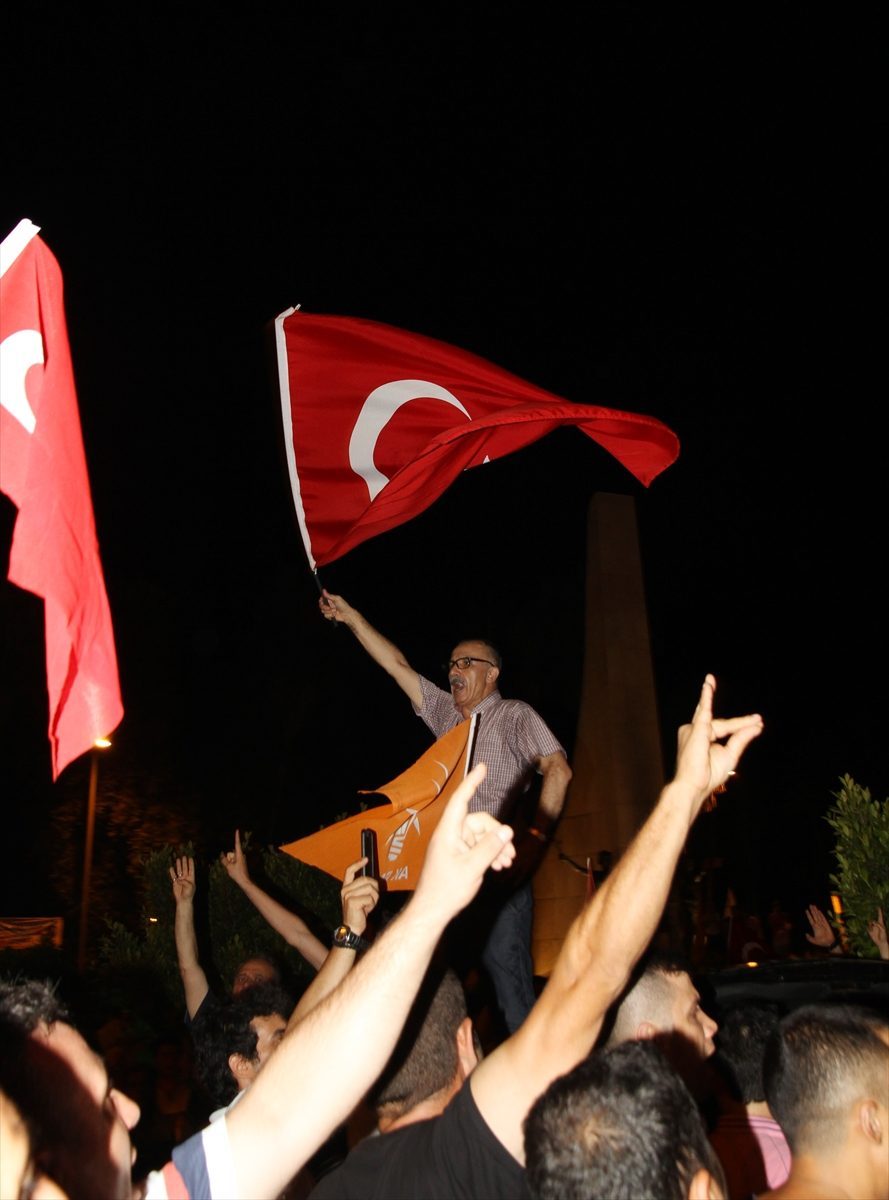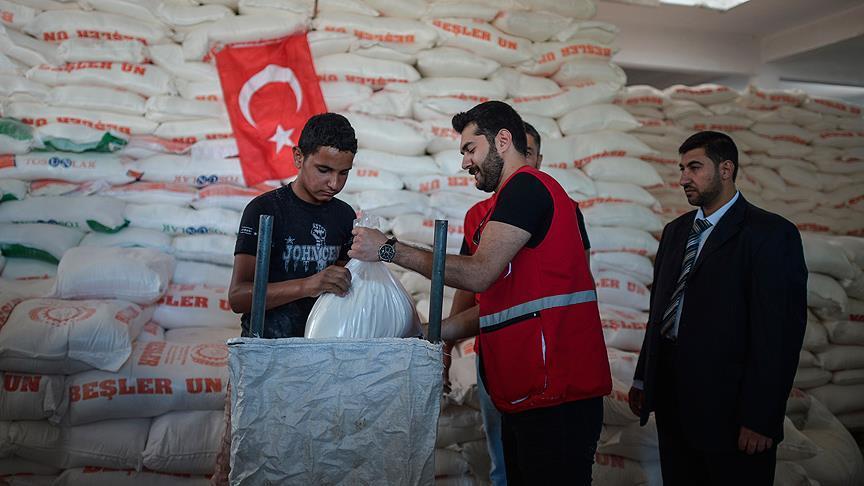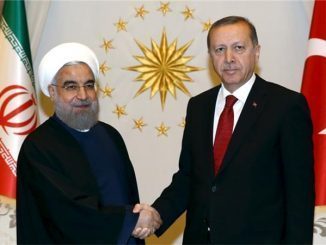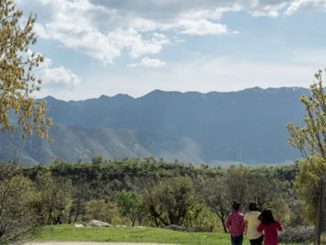
On the night of 15 July 2016, Turkey witnessed its bloodiest coup attempt in the history of the Republic. The very essence and symbols of Turkish democracy came under bombardment for the first time. But despite its brutality and seriousness, the coup was an utter failure.
Al-Sharq Forum has published an “expert brief” by Dr. Omar Ashour* on the failed coup in Turkey that “attempts to understand why it failed and what lessons can be learned for coup-proofing and the future defense of Turkish democracy.”
The Bloody Hour of the Putschists:
The military coup attempt in Turkey was spearheaded by a group of high-ranking military commanders and factions within the army. The level of bloodshed and destruction was unprecedented in the other coups and coup-attempts Turkey has lived through. More than 250 citizens lost their lives and over 1,500 were wounded. The putschists were responsible for killing and wounding more Turks in a few hours than the so-called “Islamic State” Organization (IS) has killed and wounded over the past two years (214 killed and 893 wounded). Moreover, the parliament, the presidential palace and civilian targets were bombed by fighter jets paid for by the Turkish taxpayer and stolen by the putschists. Indeed, the very essence and symbols of Turkish democracy came under bombardment for the first time since the declaration of the Republic in October 1923. But despite its brutality and seriousness, the coup was an utter failure.
Military Coup Attempts in Turkey:
The Declining Trajectory of Military Coups in Turkey Coup-attempts in Turkey has been in decline in terms of success, but not in terms of their quantity or quality. Since 1960, Turkey has suffered successful coups or serious coup attempts almost every ten years: 1960, 1971, 1980, 1997, 2007 and 2016. In May 1960, a military coup initiated by junior officers broke the chain of command and ended Turkey’s first experience of democracy with a resounding tragedy: the execution of President Adnan Menderes. The junta of 1960 purged 235 generals, more than 3000 officers, 500 judges and 1400 university professors in March 1971, a “gentler” coup was carried out by a memorandum rather than murder. It ended President Süleyman Demirel’s term prematurely on the promise of ending social instability. Instead, it worsened it. However, this did not stop the military from illegitimately intervening into politics. Nine years later, in September 1980, the Chief of General Staff, Ahmet Kenan Evren, led a successful coup with the bloodiest aftermath in Turkey. The 1980 junta carried out 50 executions, sentenced over 6,000 political prisoners to death, arrested over 600,000 people, and blacklisted over 1.6 million Turkish citizens. In doing so, it temporarily established a “junta’s republic”. Moreover, it formalized its intervention in politics through the alteration of the constitution. The initial version of the 1982 constitution (various amendments have since been made, including in 1987, 2007 and 2010) gave the military-dominated National Security Council (MGK) veto powers over internal politics. The MGK exercised these powers in February 1997. As in 1971, the 1997 coup was staged by memorandum, prematurely ending a coalition government headed by Prime Minister Necmettin Erbakan. Both civilian politicians and the public accepted the junta’s ultimatum in 1997. However, this trend of regular successful coups began breaking down as of 2002. An alleged coup attempt in 2003 that the media referred to as “sledgehammer” did not materialize. The then-commanders of the first army, air-force and navy were accused of plotting it, and initially sentenced in September 2012, but the verdicts were quashed in 2015. A clearer and less controversial coup attempt came in April 2007, via an e-memorandum that the General Staff published on their website. It was averted by a clever maneuver. Rather than resigning, the then-Turkish Prime Minister, Recep Tayyip Erdogan, called for early elections, and hence renewed his democratic mandate and raised the costs of a coup. It worked, and it was an indication that succumbing to the terror of arms was becoming a part of a dark history rather than a contemporary reality. Turkey was certainly changing, but this did not discourage a military faction and their civilian backers from staging the 2016 coup attempt.
Why Did the Coup Fail?
What has changed in Turkey to foil a complex coup attempt led by senior military commanders who used tanks and fighter-jets in an attempt to impose their will? On a structural/contextual level, Turkey has been steadily rising towards the top-third of the Human Development Index (HDI) since 2005. HDI is a composite statistic of education (a proxy for skills), income per capita (a proxy for socio-economic status) and life expectancy indicators (a proxy for health). Additionally, under the Justice and Development Party (AKP), the Turkish economy has been growing at a staggering rate; by 9.2% in 2010, during an international economic crisis, and by 8.4% in 2011, during regional uprisings and instability. History also had a transformative impact. The 1980 coup left deep scars within Turkish society and its political class. These scars imbued the society with a defiant psychology of “never again” to a junta’s rule, and these sentiments turned into resistance, vision and maturity in 2016.
The Turkish political class showed much higher levels of these qualities in comparison to their counterparts in regions ranging from South America in the 1970s to Southeast Asia in the 2010s. Generally, most electoral losers in emerging democracies would opportunistically side with the putschists against the electoral winners; a pattern well-established throughout the South American coups of the 1970s, in Algeria in 1992, in Egypt in 2013, in Thailand in 2014, and elsewhere. Turkey in 2016 was certainly an exception to the pattern. Moreover, the quality of leadership also mattered. The charisma, tenacity, and clarity of Erdogan and Yıldırım inspired both the public and state institutions. When it came to the state’s armed institutions, the balance of hard-power was a critical factor. The Turkish military, security forces and intelligence directorate were instrumental in countering the putschists from the first hour. “We shall fight till the last bullet,” read an unusual statement from the National Intelligence Directorate (MIT). It inflamed sentiments harking back to the days of the national resistance, not just in the ranks of the security and military forces, but also among the general population. The initial statements of the First Field Army Commander and that of Prime Minister Yıldırım that “the Chief of Staff has been kidnapped,” facilitated the surrender of many soldiers with little to no resistance. The statements clarified to the soldiers that what was happening was an illegal mutiny against the legitimate political and military leadership, and not a military exercise or a counterterrorism operation of any sort.
On the popular level, Turkish civil resistance was quite impressive. It was perhaps the first time in the history of civil resistance to coups when civilian cars attempted to block fighter jets’ runways to prevent them from bombing an elected parliament. It was also one of the rare times when civilians just ducked – and did not run away– when under fire. Once the shooting stopped, they stood up, advanced and chanted again. Their resilience was exceptional and their quick mobilization on the streets of Istanbul and Ankara were critical. However, as shown in anti-coup lessons ranging from Argentina to Indonesia, street mobilization has never been a decisive factor on its own. It is necessary, but not sufficient. The latest unfortunate proof of this came from Egypt. The country saw the longest and most resilient sit-ins in its modern history in protest at its bloody coup in July 2013. The massive sit-ins in Rabaa and al-Nahda Squares did not prevent the junta from taking over the country, and from committing the worst massacres in Egypt’s modern history.
The Challenges of Post-Coup Policies:
The successful resistance to the 2016 putschists has not only saved Turkey from a brutal junta and a potential civil war, but also saved the region from further chaos. Some cases from the region illustrate scenarios which Turkey has evaded. The case of Egypt in 2013, for example, illustrates the consequences of a junta’s rule, ranging from unchecked corruption to mass-murderous repression. The case of Libya’s coup in May 2014 shows us civil war scenarios, as does the case of Algeria in 1992.
The governmental policies in the aftermath of failed coup attempts can be quite challenging. On one side, the Turkish government needs to take tough measures to punish the putschists and their collaborators, both as a matter of justice to the dead and injured and as a matter of deterrence against future or “wannabe” putschists. The latter dimension is particularly necessary for defending an emerging democracy. On the other hand, the government needs to be aware that if it goes too far, it may not only sacrifice the very democracy it is trying to defend, but may also engender hostile reactions within military institutions. Therefore, the real challenge is implementing justice while maintaining social peace and national unity. This can be partly achieved by sustained consultations with the three other major political parties and super-majorities in parliament voting for coup-proofing and security policies Post-coup and coup-proofing policy options are well-researched in the literature. In that regard, two cases can be recommended for useful insights on what not to do: Spain in October 1981 and Argentina in April 1987. Both countries suffered from failed coup attempts in these two years. Neither attempt could be compared to the July 2016 attempt in terms of bloodshed, levels of violence and brutality, or the damage incurred to state institutions. The attempt in Spain aimed at halting a transition to democracy and re-empowering a Francoist military faction. Like in Turkey, it was a coup against democracy. The putschists took the members of the parliament and the cabinet hostage for 18 hours before the coup collapsed, miraculously, without bloodshed. The collapse was due to a combination of public outrage, the King’s denunciation, and the failure to mobilize the rest of the armed forces/institutions. The Argentinian Carapintada attempt of April 1987 was an armed rebellion primarily against transitional justice. The two relatively junior officer who led the attempt refused to face a court of justice for crimes committed during Argentina’s “Dirty War” (1976-1983). The attempt was foiled by a compromise, with legal consequences. The law of “Due Obedience” was issued and it gave a legal immunity for officers under the rank of “colonel” as they were just “obeying orders from their superiors.”12 It was a legal framework introducing impunity, and, naturally, it was repealed in 2003.
Both these cases, and others, show that sacrificing justice, does not necessarily lead to peace or stability. The leaders of the coup attempts in both countries were lightly sentenced. Some of them attempted to stage other coups in 1982 in Spain (such as General Jaime Milans del Bosch) and in 1988 in Argentina (such as Lieutenant-Colonel Aldo Rico). Rico’s followers kept on trying until December 1990 in Argentina, killing citizens in their final attempt.
Certainly, the path of post-coup policies needs to be trodden very carefully. The critical factors that should be taken into consideration while formulating coup-proofing policies include national unity, unanimity/super-majority within political class, intra-military factionalism, the psyche of the soldiers, the competitions between Turkey’s armed institutions (security forces, intelligence and army), external democratic allies, and regional rivals and enemies – both state and non-state armed actors. Measuring the impact of coup-proofing policies on such varying factors is quite critical. Turkish decision-makers enjoy an advantage compared to all of the above-mentioned cases: almost every component of the Turkish Republic successfully resisted the 2016 coup attempt, including the military, the police, the intelligence, the political class, the media and the citizenry. This happened to the bitter dismay of regional and international forces which favored the putshists. This advantageous position can help them formulate coup-proofing policies without the risk of undermining democracy and national unity.
*Dr. Omar Ashour is a Senior Associate Fellow at Al Sharq Forum, a Senior Lecturer in Security Studies at the University of Exeter and an Associate Fellow at Chatham House in London.



